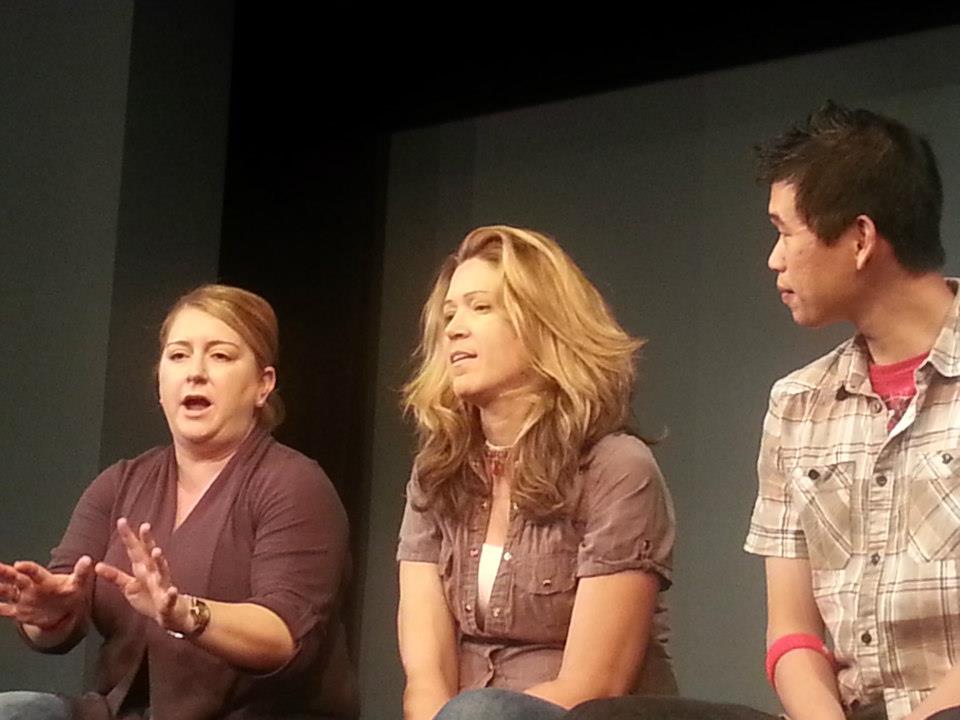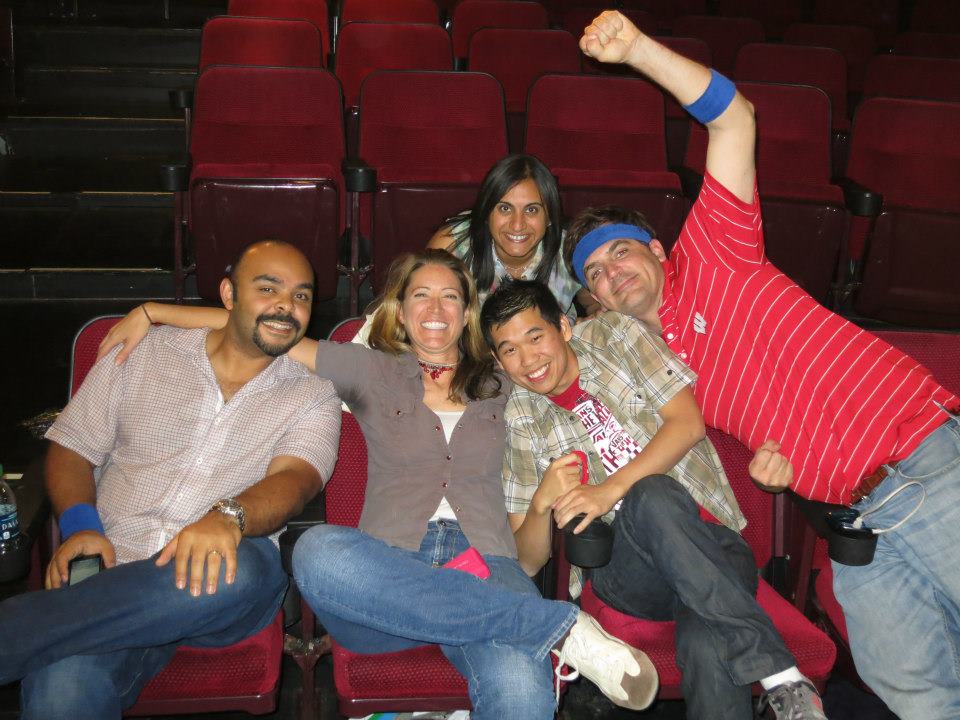4 Ways Improv Comedy is like Sex Coaching
/“The first rule of improv: Don’t deny.”

On June 23, this year, I walked into my first improv class at the National Comedy Theater in San Diego. This Wednesday, November 28, I will perform a live improv show with my fellow classmates, in completion of my improv training. I signed up for these classes for skill building as a public speaker, but was surprised to also find a number of life lessons relevant to my work as a sex therapist and relationship counselor.
1. Yes, and… The first rule we learned was not to deny anything another player says, but to build on whatever they’ve added to the scene, through a “yes, and…” mentality. This means that I could have an idea and vision of where to take a scene and it will never work out that way. This is a nice reminder in relationships: if you find yourself arguing to be right, want things your way, or are just generally disagreeable, perhaps a shift to a “yes mentality” could breathe some new life into your partnership. What would happen if you spent a day saying, “yes, and…” to all your partner’s ideas and suggestions? I guarantee it would be a unique experience.
2. Spontaneity and mindfulness. Improv is different than stand-up comedy because the humor is based on spontaneous interactions between the players, not pre-determined stories and jokes. Improv is a prime example of being in the moment with another person, and building a scene, from moment to moment. Mindfulness is awareness in the moment, without judgment. Being mindful allows the improv players to be flexible and go with the flow.
I am always teaching about mindfulness with my clients for personal growth, improved communication, and enjoying pleasure in the bedroom. If we are distracted or caught up in our mind chatter, we can’t be present in the moment or truly enjoy our partner. If we aren’t aware of our thoughts, emotions, and sensations, we can’t know our triggers or patterns and how to alter them. When we practice mindfulness in our relationships, we stop dragging the past into the present and are able to respond to what’s happening in that moment.
3. Fresh Choice. One of the games we play in improv is called Fresh Choice. We ask for a random suggestion from the audience for something like a sport, occupation, or relationship between two people. With only that information, we start creating a scene together. There is a referee, however, who has ultimate control over the scene by calling out “fresh choice!” after any spoken line. If the referee doesn’t like the new line, they can keep calling “fresh choice” until they do.

A few weeks ago I was working with a couple around how to handle anger and frustration in healthier ways. We had already talked about considering a new perspective on the situations that were triggering them. It occurred to me that if they could only be reminded to make a “fresh choice,” they could break their habits and try something new. I mentioned this improv game and suggested they gently suggest “fresh choice” to assist in each other’s creativity. They were thrilled to have a game to use to work on their tough personal growth topics, with humor and creativity instead of self-doubt and frustration.
4. Fear and confusion are OK. Just keep going. Fear and confusion were common experiences for me in class. What am I doing? I don’t get it? What should I do now? But it didn’t matter. My fear was there, but I had to keep going to interact with my classmates and keep trying. This advice is imperative to any coaching or counseling situation, let alone coaching for intimacy topics related to our deepest insecurities and needs. Being afraid is natural around the vulnerable topics of intimacy. The presence of fear doesn’t indicate a wrong path, it just means what you’re working on is hard. Acknowledging your fears and choosing to move forward is a key to personal growth. Sometimes we make asses of ourselves. But if we keep a good sense of humor, don’t take ourselves too seriously, and keep trying, everyone benefits.
If you’d like to watch an improv comedy show or take improv classes for yourself, I highly recommend the National Comedy Theater!
~Dr. Jenn Gunsaullus, San Diego, CA -- Sex Coach, Sexuality Speaker, Sexologist, Sociologist









































